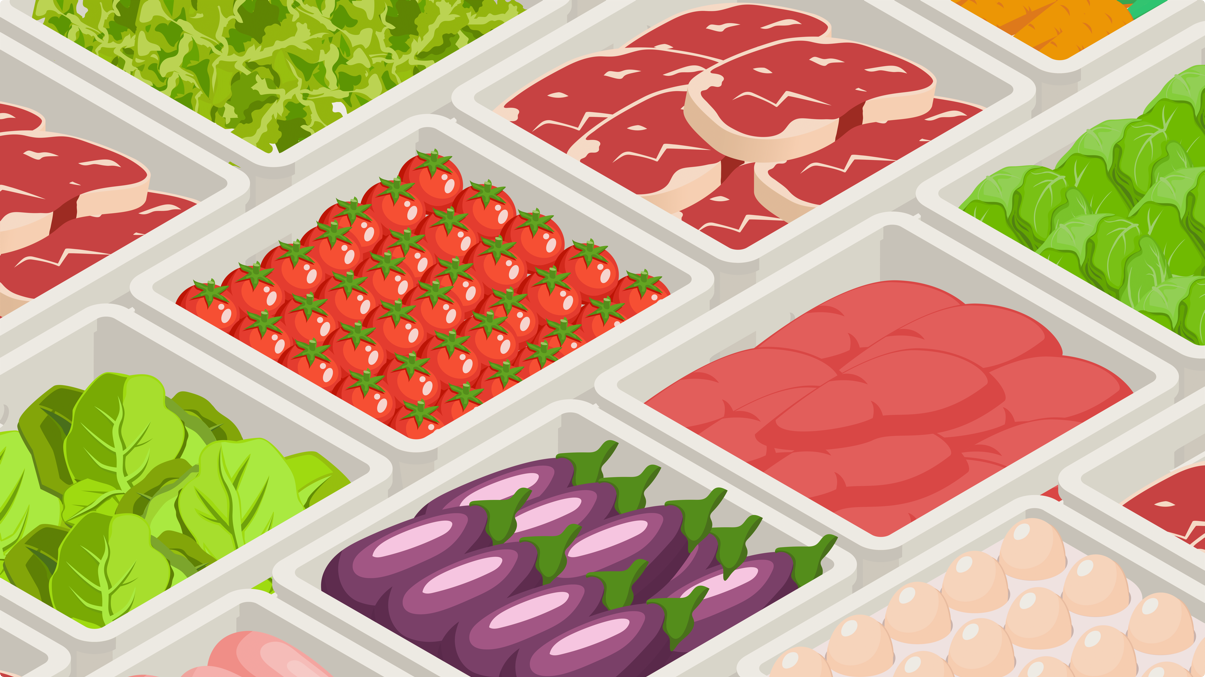Ctrl-Alt-Meat: Why this Podcast? Why Now?
Coller Foundation Insights —

The world is changing fast – whether we like it or not.
Businesses and governments alike are having to take stock, and adapt to new pressures, demands, and challenges as climate change, pandemics, pollution and population growth threaten to destabilise the societal structures we have for so long had the luxury not to notice.
We feel that, now more than ever, the global food system in all of its complexities and contradictions, is worth paying attention to. So we’ve decided to set out just a few of the reasons why.
In the last few years, the climate issue has only grown louder and more urgent. As the global phenomenon of Extinction Rebellion has sparked protest and debate across the globe, we’ve seen successive governments grapple with how to address it, and multinational companies from Nike to Samsung to Sainsbury’s invest millions in projecting a more sustainable image.
1. The Climate Crisis
So where exactly does food fit into all of this? Well, it all comes down to a single, four-letter word: meat. Meat remains a huge part of most people’s diets. The average British citizen eats 81kg of meat per year. In the US, it’s 124kg. Meanwhile meat production alone is generating around 14.5% of the worlds greenhouse gasses – more than the entire global transport sector.
This leaves us with a critical question: how can a food system over-reliant on meat, effectively adjust to the challenges of the moment, and continue to feed the world in a safe, effective, carbon-neutral way?
2. Human Rights
What do you think of when you hear the phrase ‘human rights’? Do you think of the right to clean water and air perhaps? Or the right to a safe home and a full stomach?
Across the globe, as a direct result of the practices of the contemporary global food system, millions of people are not having their basic human rights met. Waste from factory farms, which according to the NFU leaks from storage lagoons at a rate of up to 4.35 million gallons a year, is contaminating water sources across the globe.
The air we breathe is also affected. Intensive animal agriculture leaks ammonia, hydrogen sulfide, methane, and disparate particulate matter into the air, covering a wide area around the farm and polluting nearby residential areas to the point of driving away whole communities for fear of awful smells and worsening health.
And all of this is before we even get to the most obvious one – hunger and waste. Around the world, hunger is on the rise, affecting almost 9% of all people on earth. And yet if we were not feeding a huge amount of the cereals and soya we produce to livestock to generate a vastly reduced amount of meat, we would have enough food to 16 billion people.
3. The Next Pandemic
We know – this is the absolute last phrase anyone wants to hear right now. But the uncomfortable truth is that if things continue as they are, we may find ourselves facing a very similar situation very soon. And the next one could be much, much worse.
There are, unfortunately, a whole host of reasons why global pandemics of the kind we are currently living through are becoming more likely. One, however, stands tall among the rest. 75% of all new human diseases over the last decade have originated in animals, and intensive animal agriculture has created the perfect conditions for viruses to mutate and spread.
In factory farms and CAFOs, genetically similar livestock are packed together in poorly ventilated spaces, all the while natural habitats are destroyed to create yet more pastures, driving displaced animals to seek refuge in towns and cities, bringing their pathogens with them.
The United Nations Food and Agriculture Organisation has already described intensive animal agriculture as “the weakest link in our global health chain”, and if (or when) another pandemic emerges – it is more than likely that the way we produce our food will be directly to blame.
The Podcast
The global food business then, is facing down huge challenges, most significantly in terms of how we produce and consume meat. This is, however, also a time of exciting innovation.
New technologies are being developed, new techniques being trialed, and new innovations in law and policy guiding the way toward a fairer, cleaner, more sustainable food system.
With Ctrl-Alt-Meat, you’ll get the inside track on all of these exciting new developments, and hear from the pioneers, free thinkers and innovators working to change the way we produce, consume, and think about the food we eat.
Join us as we set out on this incredible journey. It promises to be something very special.
Ctrl-Alt-Meat will be available on Spotify, Apple Podcasts, or wherever you get your podcasts, from the 7th of October 2021. You can find out more at ctrl-alt-meat.com